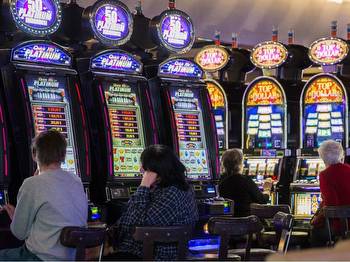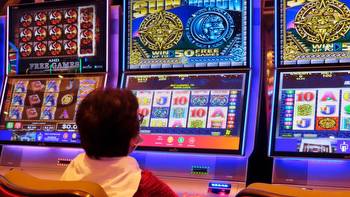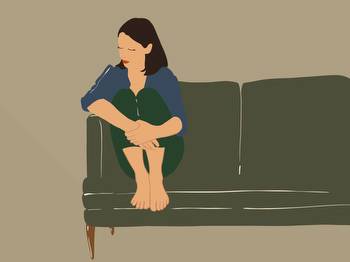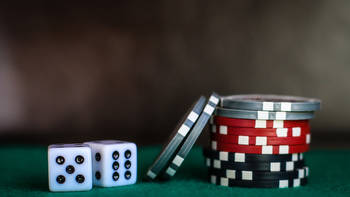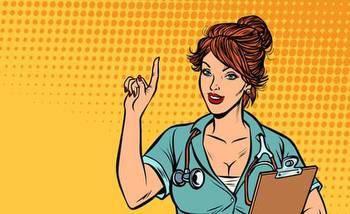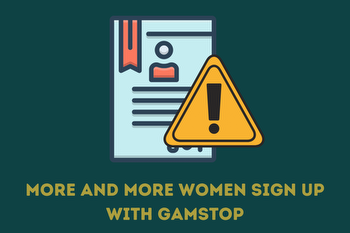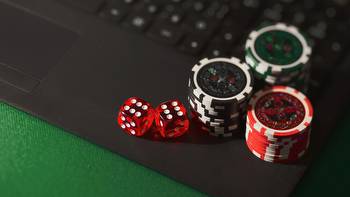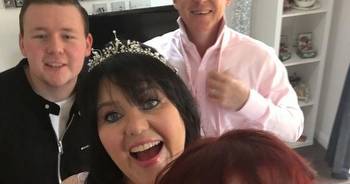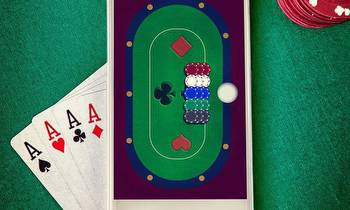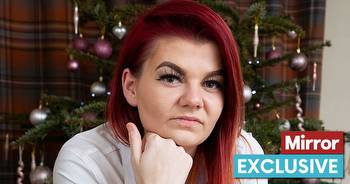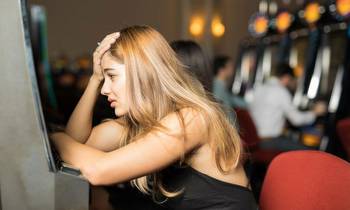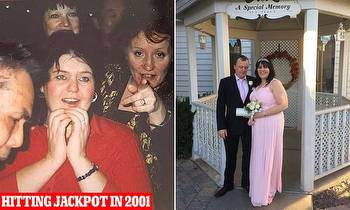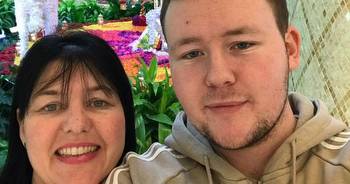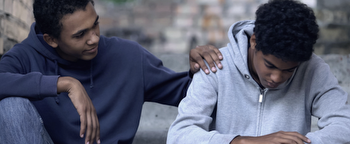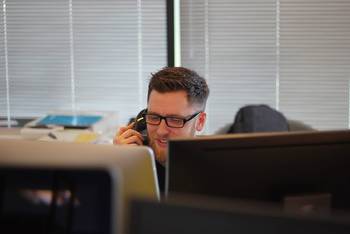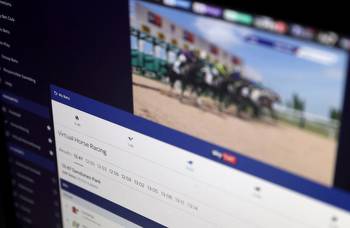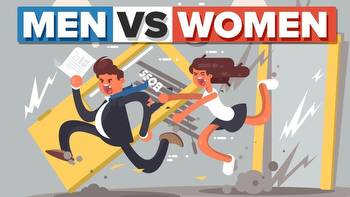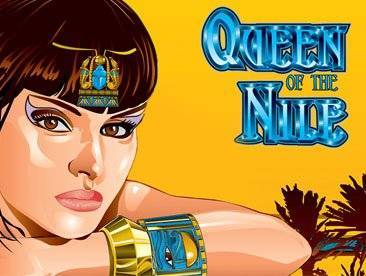Pandemic leads to sharpest ever rise in women seeking help for gambling addiction
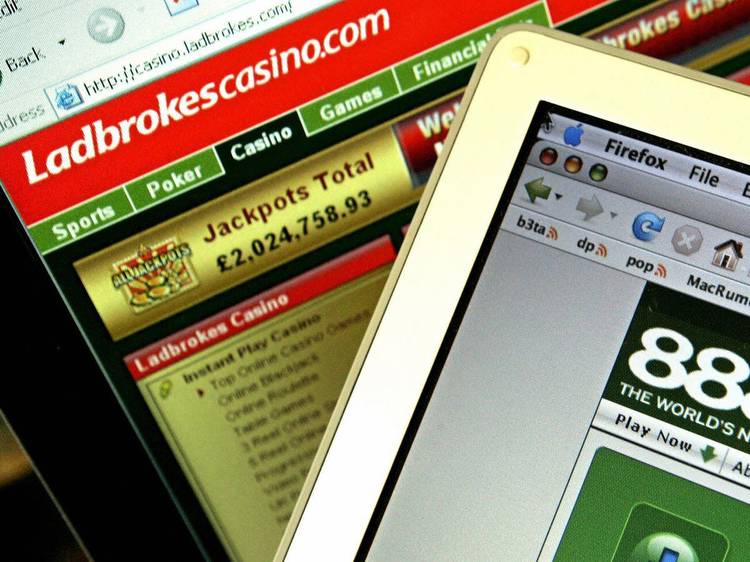
The pandemic has led to the sharpest ever rise in women seeking help for their gambling addictions, new figures from the national gambling helpline show.
Data, shared exclusively with The Independent, shows a four per cent rise in women needing support for their gambling addiction during the Covid crisis.
While some 2,764 women contacted the helpline, which is run by leading charity GamCare, to voice fears about their compulsive gambling in 2019/2020, 3,005 female gamblers sought help in 2020/2021.
The amount of women who report struggling with a gambling addiction has increased at double the rate of men in recent years, according to GamCare, yet just one per cent of women who are suffering from gambling-related harm get in touch with the national gambling helpline.
Marina Smith, manager for GamCare’s dedicated women’s programme, told The Independent the increase in women reaching out for help is likely to be linked to lockdowns forcing people to spend much more time at home online.
She added: “This has created many more opportunities for women to gamble, and if you combine this with the financial stresses of the last year... Data shows women have been more likely to be furloughed in the pandemic, as well as taking on more caring responsibilities.
“This creates a perfect storm for gambling. More time has been spent indoors where they can just pick the phone up and access gambling products. A lot of women have been separated from friends, family and colleagues during the pandemic.
“This can make recovery from gambling more difficult. Social support is extremely important for recovery from gambling. The societal expectations of women to be caregivers increases the shame and stigma for women gamblers.”
Although men are still dramatically more likely to contact the gambling helpline than women, GamCare notes the percentage of women seeking support has hit a record high in the Covid crisis. Women accounted for almost a quarter (23 per cent) of those ringing about their compulsive gambling from April 2020 to April 2021, up from 19 per cent in 2018 to 2019.
Ms Smith noted compulsive gambling is a “hidden addiction” as there are no physical signs, but warned this is even more true of women given the fact compulsive gambling is more commonly viewed as an issue which impacting men.
On top of that, when it comes to ethnic minority groups, “there is an added layer of shame,” she said. So “although women from black and minority ethnic communities tend to gamble less, when they do gamble there are at higher risk of harm,” she added.
The charity says the increasing numbers of female problem gamblers stems from the rise in gambling on mobile phones – as women no longer have to enter male-dominated bookmakers. Around seven in 10 female gamblers do it online, either through apps or websites.
Exclusive data from Gordon Moody, which supports individuals with the most extreme gambling addictions in the UK, saw the number of women seeking help from their services double between April to June 2020 and April to June this year.
The service is due to open the world’s first gambling treatment centre solely for women in the Midlands this year.
In March 2020, women accounted for 26 per cent of all its users, rising to 31 percent by September.
Liz Karter, a psychotherapist who specialises in gambling addiction for women, told The Independent: “Women and men are seeking different experiences when they become addicted to gambling. Women are more likely to become addicted to gambling because it feels calming.
“What hooks a woman tends not to be excitement but just being lost in something whereas men are more likely to be looking for that thrill.
“When one woman I helped was gambling on slots online, her FitBit registered as being in very deep sleep. For women, at first, they are often seeking that sense of calm. They talk to me about not thinking about anything else. No stresses and anxieties of day-to-day life. But the coping mechanism exacerbates the underlying issues.
“She might lose touch with a reality that feels overwhelming but in doing so she loses touch with the reality of how much time and money is spent. Often people say to me ‘I did not know how much money I’d spent until it was gone.”
Ms Karter, who has been working as a psychotherapist for 20 years, noted for both men and women gambling is often a form of self-medication for mental health issues.
Jenny, a “high-flying accountant” in her 40s whom Ms Karter supported with therapy, started finding her gambling was spiralling out of control after lockdown pressures became overwhelming.
Ms Karter added: “She was feeling trapped with the pressures of work and home during lockdown all going on in the one place. She was feeling completely stressed out and anxious because of an overwhelming workload. Gambling is an escape.”
“Like hundreds of women I’ve worked with, she can emotionally and mentally escape through gambling and takes an exit through the screen.”
She warned gambling is often self-medication for stress, anxiety or depression – all issues which have been compounded by lockdown measures.
“It depends on where the source of sad, angry, scared comes from,” Ms Karter added. “Unlike drinking, at first there seems to be no symptoms. You don’t have a hangover.”
She gave another example of a woman who was so heavily addicted to gambling she lost everything she owned and will soon have to sell her home.
Ms Karter added: “She cannot stop for two reasons. She is trying to get her money back. Also by this stage, her real-life feels so scary and so dark she can’t face it so she is continually seeking to escape it.”
Anyone concerned about their own gambling or their loved one's gambling can contact the national gambling helpline by calling them for free on 0808 8020 133 which is open 24 hours a day, seven days a week. GamCarehere.









